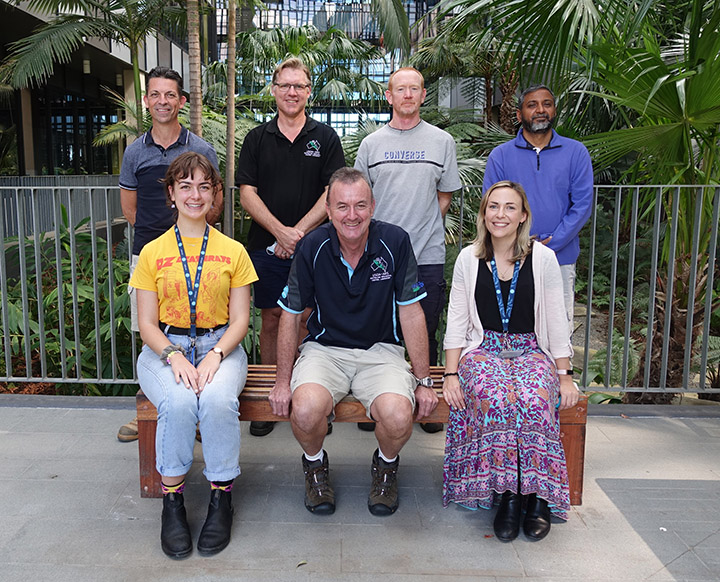Australian Biological Control Laboratory (ABCL) Staff

Australian Biological Control Laboratory (ABCL) staff actively search the natural areas of Australia and Southeast Asia for insects and other organisms that feed on plant species and pest insects that are invasive in the U.S.
The staff collaborates with U.S. scientists and have established a very close and productive, long-term relationship with the Invasive Plant Research Laboratory (IPRL) in Fort Lauderdale, Florida.
Many invasive weeds in Florida such as the Australian broad-leaved paperbark tree, Melaleuca quinquenervia; Old World climbing fern, Lygodium microphyllum; ear leaf Acacia, Acacia auriculiformis; hydrilla, Hydrilla verticillata; mosquito fern, Azolla pinnata and Australian pine, Casuarina spp. are native to Australia.
However, the native distribution of many Florida and U.S. invasive species continues northward from Australia into Asia, including China, India, Indonesia, Korea, Malaysia, Singapore, Thailand, Vietnam, and Papua New Guinea.
With excellent collaborators in the region, ABCL is exploring Australasia to find the most promising biological control agents. Long-term management of several of these species is critical to the restoration of the Everglades ecosystem in south Florida.
Research conducted at ABCL involves determining native distribution of a target weed or pest species, exploration for their natural enemies, understanding the ecology of these enemies and their hosts, conducting field host-range surveys, and performing preliminary screening, and impact assessments of potential agents. Our research is designed to determine what controls the weed or pest in its native environment, and organisms that only attack the target are intensively investigated.
The ABCL is committed to the research and development of biological control solutions for U.S. weeds and insects of Australasian origin. Our research is critical, not only because biological control offers the safest and most cost-effective approach to long-term management of widespread invasive weeds and pests, but also because, in some instances, it is the only viable control option.
Contact: Matthew Purcell, matthew.purcell@csiro.au
Australian Biological Control Laboratory (ABCL) is based at the Ecosciences Precinct in Brisbane, Australia, and is administered through a Specific Cooperative Agreement between ARS and Australia’s Federal research body, the Commonwealth Scientific and Industrial Research Organisation (CSIRO). The agreement has been a very productive, mutually beneficial, long-term collaborative relationship originating in 1985. Assisting with solving U.S. problems is reciprocated by ARS through supplying Australian scientists with biological control agents from the America’s to control invasive weeds in Australia.

